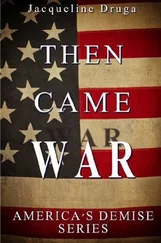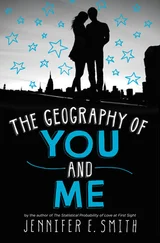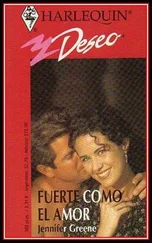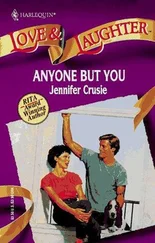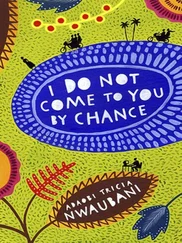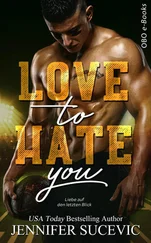I waited until he went to work the next day to make the appointment at the Planned Parenthood in New Haven, an hour’s drive away. I took money out of the bank — and, I’m ashamed to say, out of his wallet. I drove the Tercel my mother had given me to the clinic, and, when it was over, I bought a bottle of Advil and a bottle of water and just kept driving west. As the miles slid by, the year that I’d endured — my grandfather’s stroke, my trip from Toledo to New London, my brief time with Raine, then the car, then David, had all started to feel like it had happened to someone else. Someone else had slept in the cramped backseat of the car; someone else had gotten married in front of a justice of the peace with bad breath and a wandering eye; someone else had gotten that abortion and woken up alone, a curly-haired, kind-eyed nurse handing her a sanitary pad and asking whether there was anyone waiting to take her home.
In Los Angeles, I bought a driver’s license with a fake name and a birthday that made me twenty-one. Eventually, I lived so long as that girl, India Bishop, that I almost forgot I’d ever been anyone else; a girl whose mother hadn’t wanted her, a girl who’d stolen food and slept in a car, a girl who’d left a husband behind.
My plane landed in LaGuardia just as night was falling. I bought a new cell phone and spent the night in a hotel. In the morning I cabbed it to Grand Central and bought a ticket for the train that would take me to New London for the first time since I’d left David, all those years ago. The trip was only a few hours, through the soupy, humid August air. Kids had opened a fire hydrant on the corner and it was dribbling water into the gutter. In the park in the center of town, teenage girls in bikinis lay on towels, and mothers with babies pushed strollers back and forth in the shade.
David’s apartment was an easy walk from the station. The front door to the old Victorian, long since divided into one-and two-bedroom flats, was supposed to be locked, but it hadn’t been when I’d known him, and it wasn’t now. The stairs had been stripped of the green carpet I remembered, and now the wood of the walls had a mellow gleam. The banister had been refinished, and the walls were painted a pretty cream color, and the ceramic Virgin was where I remembered her, in the little nook at the top of the stairs.
I knocked at the door, and he swung it open and looked at me for a minute, staring blankly. I had to remind myself that I had a different face now. He might not even recognize me. David looked older, heavier, tired around the eyes. His hair — what was left of it — was white, and he wore glasses, which were new, and a white cotton button-down shirt, untucked, and worn corduroy pants. There was a gold wedding band, the one we’d bought together or its twin, on his left hand, and, as I stood in the hallway that smelled like soup, listening to an air conditioner whine and someone’s TV play the nightly news, he smiled at me. His face lit up and he looked handsome again; handsome and as young as he’d been when we were together. “Well,” he said. “Look who’s here.”
It was cool inside. That was the first thing I noticed as David took my Mexico tote bag and set it by the door. “Can I get you anything to drink? I’ve got a nice Scotch,” he said, gesturing toward a bar cart made of wrought iron and mirrored panels. I looked around, remembering: the Turkish rugs he’d layered over the hardwood floors, the colorful abstract paintings on the walls, the green velvet couch, the art books and novels and old vinyl albums lined alphabetically on handmade shelves that stretched from the floor to the top of the twelve-foot ceiling, with a rolling wooden ladder in the corner. I thought back to when I was eighteen and thought this was the most beautiful place I’d ever been. We’d made love, and I’d waited until he’d fallen asleep, then crept out of his bed and ate everything in his refrigerator, including an entire jar of strawberry jam.
“Just some water, please.”
He handed me a jelly glass filled from a filter-pitcher. I sat down on the couch and cupped the cool glass in my hands, letting him look me over. “What,” he asked me pleasantly, “did you do to yourself?”
I managed a little laugh. “It’s been a while, you know.”
“You were so beautiful,” David said. “Why would you want to change?”
I shrugged.
“Sammie.” He reached out and touched my hair.
“I got married again.” The words came out in a croak. “In New York. An older man.”
He had moved to stand behind me. I couldn’t see his face, but I imagined that he was smiling. “Sounds like you’ve got a type.”
“You know,” I said, without turning, without looking at him, “we never got divorced.”
His hand moved slowly in my hair. “I got the papers you sent, and I know I should have signed them. I knew you weren’t coming back. But I never did. I just kept hoping. .” His hand was on my shoulder now. “Are you happy?” he asked.
Eyes closed, I whispered, “For a while, I was.”
“Did you ever think of me?”
“Sometimes.” It was true. In Los Angeles, when I was broke and lonely, getting rejected at auditions a dozen times a week, I’d think of David, who had always been unfailingly kind. I’d remember the coat he’d given me, the mugs of milky coffee, his mouth warm against the back of my neck. Little Cat, Little Cat .
“My husband and I… we were supposed to have a baby. With a surrogate.” He came to sit beside me on the couch. His eyebrows drew together as he studied me. I met his gaze, telling myself I wasn’t the girl he’d known, the girl he’d saved, the cat who’d crept out of his bed and out of his house one summer morning with all the cash in his wallet, the girl who’d sold her engagement ring at a West Hollywood pawnshop and tried to think of that brief, early marriage as the first of many skins she’d shed, the first of many selves she’d outgrow.
“About that divorce,” I said.
He sighed, nodding. “I figured someday you’d be back for that.”
“I should have done it a while ago.” The truth was, I’d hoped that sending him the papers would be enough, that he’d sign them and file them and it would all be over without my having to do a thing.
“Does it mean,” he asked, “that you’re not really married to the other guy?”
“That’s a little unclear. He’s dead now.”
“Oh.” He looked sympathetic, and I felt stabbed through with remorse. He wasn’t a bad guy, and he’d never done anything except try to help me. I had treated him poorly, and being young and mistreated myself wasn’t much of an excuse.
The papers I’d sent David, my petition for divorce, were in a drawer in the kitchen, still in the envelope I’d used to mail them. I felt my heart stutter, looking at my teenage handwriting, big and loopy, young and hopeful. I’d called a lawyer from the train that morning. In David’s apartment I called her again, and she said she’d meet us in her office in an hour. The rules, as she explained them when we arrived, were clear: I’d filed papers, but David had never signed them, which made me guilty of bigamy. “We can file for leniency,” she told us, and David had nodded. “I’ll do whatever I can to make this right.” My mind wandered while they talked. I wondered what would happen: if my marriage hadn’t been legal, then maybe Marcus couldn’t have left me anything. Maybe not even the baby was mine. I wondered, too, why David had never remarried, whether there’d been a string of teenage girls in the years since we’d parted or if maybe he was still in love with me.
Less than an hour, the lawyer had said, but by the time everything was signed and notarized it was closer to two, and then we were back out on the sticky sidewalk, underneath a low gray sky. The first hard thing was done. I was divorced. I’d made it over the hurdle. But worse was coming.
Читать дальше

